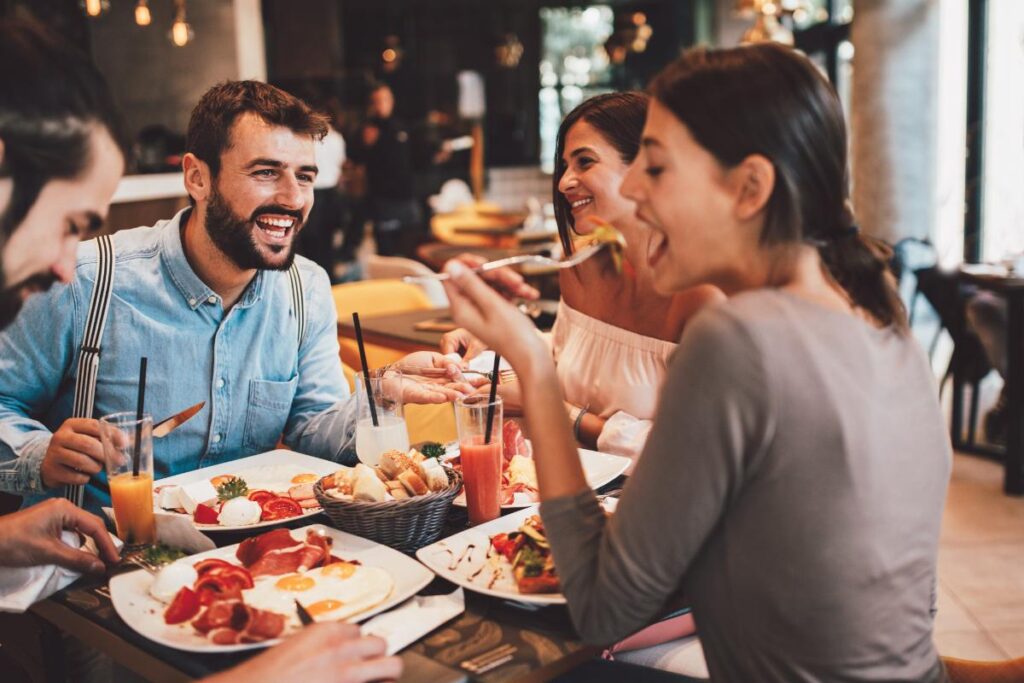For those recovering from an alcohol use disorder, the urge to consume beer, wine, or liquor can be a daily struggle. Fortunately, foods that stop alcohol cravings, or at least minimize them, may help individuals maintain sobriety. Knowing more about foods that reduce alcohol cravings can lower the risk of drinking and make relapse less likely.
If you experience alcohol addiction symptoms, turn to Promises Behavioral Health. Our alcohol detox program provides a safe, comfortable environment for clients to begin their recovery. Our inpatient and outpatient treatment services teach coping skills to help participants manage alcohol cravings. Call [direct] to find out how we can help you stay sober long-term.
How Can Certain Foods Prevent Alcohol Cravings?
When it comes to foods that stop alcohol cravings, there are a few key factors to consider. Generally, foods that reduce alcohol cravings stabilize blood sugar, improve digestion, or support brain chemistry. Reasons behind this include the following:
- Steady blood sugar normalizes hormones such as insulin, regulating the appetite and lowering cravings for foods and beverages, including alcohol
- Healthy digestion improves the body’s absorption of vitamins and minerals that reduce cravings for alcohol
- High neurotransmitters in the brain, such as dopamine, can promote feelings of well-being, keeping individuals from using alcohol to achieve the same effects.
A diet filled with items that provide these benefits may make those who experience addiction symptoms less likely to consume beer, wine, or liquor, helping them stay on the path to lasting recovery.
5 Foods That Reduce Alcohol Cravings
Though certain foods may not eliminate cravings, they can significantly lessen the urge to consume alcohol. Incorporating specific items in a balanced diet that includes lean proteins, healthy fats, fiber, and carbohydrates may decrease hankerings for beer, wine, or liquor. Here are five things to eat while in recovery.
1. Whole Grain Bread
The body converts alcohol into sugar. As a result, when a person stops drinking, they typically crave sugar, which might make them more susceptible to a relapse. Whole grain bread contains complex carbohydrates that the body metabolizes slowly, gradually releasing sugar into the bloodstream. Whole grain bread may sustain blood sugar levels throughout the day to reduce a person’s desire for alcohol.
2. Spinach
Spinach is a food that stops alcohol cravings due to its high content of fiber, which supports digestive health to improve the body’s absorption of craving-busting nutrients. It also contains essential vitamins and minerals, including magnesium and B vitamins, which can diminish the urge to drink.
3. Peanut Butter
Peanut butter is rich in dietary fiber to promote digestion and lower cravings for alcohol. It’s also an excellent source of vitamin B and protein. These nutrients contain amino acids that stimulate the brain’s production of dopamine, which may promote feelings of well-being that make people in recovery less likely to turn to alcohol.
4. Salmon
Salmon is protein-packed, which can boost neurotransmitter levels. These natural “feel-good” chemicals in the brain may make individuals less vulnerable to using alcohol to achieve feelings of euphoria or relaxation. Salmon also contains omega-3 fatty acids, which can decrease depression and improve cognitive function to reduce cravings.
5. Bananas
The B vitamins in bananas increase dopamine and serotonin levels in the brain. These mood-boosting chemicals may minimize feelings of depression and anxiety, making individuals in recovery less susceptible to using alcohol to cope.
Mindful Eating and Other Tips
In addition to incorporating more foods that reduce alcohol cravings into your diet, treatment specialists recommend mindful eating. Eating slowly, savoring each bite, and eliminating distractions while having meals may help you feel fuller for longer, lowering the urge to drink.
Eating on a consistent schedule may also regulate blood glucose levels to prevent cravings for beer, wine, or liquor. You can accomplish this by having breakfast, lunch, and dinner about four to five hours apart and consuming light snacks between meals.
Exercising several times per week may also combat cravings for alcohol. Engaging in physical activity such as walking, jogging, or cycling boosts the body’s levels of leptin, an appetite suppressor. If you don’t feel as hungry, you may be less likely to consume beer, wine, or liquor.
Turn to Promises for Alcohol Detox and Recovery
If you or someone you know struggles with alcohol addiction, reach out to Promises Behavioral Health for help. Our experienced team of clinicians provides each client with a personalized treatment plan that meets their unique needs. Our goal is to help individuals achieve sustainable sobriety.
The alcohol detox program at Promises offers a safe and comfortable atmosphere in which those with an alcohol use disorder may recover. Our treatment plans address cravings and reduce withdrawal symptoms to promote successful long-term outcomes. Take the first step in regaining control of your life by contacting us by phone at 844.875.5609 or completing our contact form.

